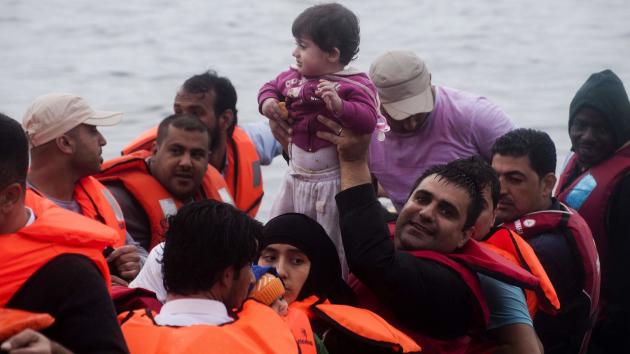EU leaders have agreed to donate €1bn to the UN refugee agency, as Croatia banned Serb citizens and cars from entering its territory.
The EU's plan to help countries bordering Syria to tackle the migration crisis were drawn up during a seven-hour emergency summit in Brussels, following months of disagreements between European leaders over how to tackle the flow of migrants.
European Council President Donald Tusk added that "hotspots" would be created by the end of November where EU experts can quickly register and identify people eligible for refugee protection.
It is hoped this will enable authorities to stop economic migrants who would probably not qualify for asylum in Europe.
"It is clear that the greatest tide of refugees and migrants is yet to come. Therefore, we need to correct the policy of open doors and windows.
"Leaders also agreed that the current chaos at our external borders must end.
"The measures we have agreed today will not end the crisis. But they are all necessary steps in the right direction."
The proposals also included offering more officials to patrol EU borders as well as boosting support to countries bordering Syria, including Lebanon, Turkey and Jordan.
However, the meeting has been overshadowed by a row over a quota system for relocating migrants.
In Depth: Journey To Europe
EU interior ministers voted by a majority in favour of system, which will see 120,000 migrants in Italy, Greece and Hungary redistributed to member states.
Slovakia, Romania, Hungary and the Czech Republic all voted against the quota plan, with Slovakia threatening legal action.
Britain and Ireland - which are not part of Europe's passport-free Schengen borderless area - were not required to take part.
Earlier, Prime Minister David Cameron pledged £100m for Syrian refugee camps - £40m of which will go towards supporting and feeding refugees in shelters neighbouring Syria.
"We must make sure that people in refugee camps are properly fed, and looked after, not least to help them but also to stop people wanting to make or thinking of making this very, very difficult and very dangerous journey to Europe," Mr Cameron said.

No comments:
Post a Comment